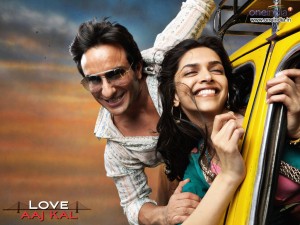Capstone Classics: See Indian Culture In A Different Light
A new monthly film club from the Capstone Theatre and Milapfest is bringing the best of Indian cinema to Liverpool audiences. And it’s about time, says Adam Scovell…
In a series of world cinema events organised last year by Little White Lies magazine, a different film was programmed from a selected country and screened in conjunction with a nationality-themed night at a hotel. It sounded great. However… of the eight countries that the season was “visiting” from around the world, astonishingly, only one had a film that was not made by someone of that nationality. Whilst Italy had Michelangelo Antonioni’s L’Eclisse (1962), America had Brian De Palma’s Body Double (1984) and Japan had Akira Kurosawa’s Ran (1985), India had for its representational film Powell and Pressburger’s Black Narcissus (1947).
Let us consider this point for one moment. Every other country had its national cinema recognised as worthy to represent it; all except India. Instead, the film that did represent it was made by the country that had invaded and colonised it, and presents the climbs of India through the colonial eyes of exotica. That’s not to say that Black Narcissus isn’t a classic of cinema. On the contrary, the film is a high point of 1940s British film, but its choice in the event highlights a wider cultural problem: the treatment of cinema from areas outside of the established realms of defined quality.
In academia, this is often referred to, rather derogatorily, as ‘Third Cinema’; films from places such as India, Africa and South America that, for a variety of reasons, sit behind the ‘First Cinema’ of Hollywood/Britain and the ‘Second Cinema’ that covers European Art House and the like. There is clearly some gulf to fill, and this is where the latest selection of Capstone Classics, at Liverpool Hope University’s Capstone Theatre, begin to seem relevant. Looking at the current brochure of what’s on film-wise, there may be some surprises. Alongside the established American classics of Hitchcock’s Psycho (1960) and Michael Curtiz’s Casablanca (1942) is a small group of films from India.

This is thanks to a collaboration between the Capstone and Milapfest: Liverpool’s own festival of Indian music and culture. Milapfest Director Alok Nayak (who is also in charge of the National Ensemble and the National Youth Orchestra for Indian Music) was fully aware of the lack of Indian cinema in the public realm before programming: “There has been a dearth of opportunities to see excellent Bollywood movies in Liverpool, as the screenings that do take place are rare or sporadic, and we wanted to share the works from this massive film industry.” He’s right and, for a genre that is one of the most financially successful and popular in the world, it’s more than surprising to see such an omission generally.
Whilst the season began last month with Richard Attenborough’s Gandhi (1982) — perhaps ironically hinting at the problems of cultural condescension previously mentioned — Nayak suggests that India has produced surprisingly few films about the man himself: ”As with the opening film of the season, Gandhi, it really gives the chance for audiences to revisit and relive classics on the big screen for maybe the first time.” It seems a fair enough logic, especially as this film is about the revolts against British colonial rule. It also seems more of a warm-up, given that the two other Indian inclusions are the purest, most bombastic form of modern Bollywood in the form of road trip movie Zindagi Na Milegi Dobara (2011) by Zoya Akhtar, and comedic love story Love Aaj Kal (2009) by Imtiaz Ali.
These may not be the Indian equivalent of art house cinema but, as Nayak points out: “We wanted to give people the chance to see Indian culture in a different light, through the eyes of some great filmmakers, who have portrayed epic, romantic, fun and frivolous stories of India.” The choices are there to provide a freshness, but also to show that India’s popular culture can be as exciting and “frivolous” as any other national cinema. The intention appears to ultimately be the inclusion and normalisation of other cultures — as film has done for certain other imports over the years (for example, the recent popularity of Scandinavian drama on BBC 4 or the ever-growing popularity in general audiences for films from France, Germany and Italy).
“We want Capstone Classics, following the first six months of films in 2015, to evolve into a monthly film club,” Nayak continues, “where people can enjoy both Hollywood and Bollywood films, with, on occasion, conversations with filmmakers and experts in the field.” Not only is the project designed to continue in a conventional sense, but one that has a more subtle, wider cultural application. Perhaps with the seeds sown for the casual blending of Anglo-American and Indian cinema, there may be possibilities further down the line for even greater programmatic risk-taking: whether that comes in the form of screenings of films by Satyajit Ray, Hrishikesh Mukherjee or Ramesh Sippy.
Adam Scovell
See Capstone Classics screenings at the Capstone Theatre, Liverpool Hope University, 6.30pm – £5 or £15 (season ticket)
Capstone Classics: Casablanca // Thursday, 19 February 2015
Capstone Classics: Zindagi Na Milegi Dobara // Thursday, 19 March 2015
Capstone Classics: Psycho // Thursday, 23 April 2015
Capstone Classics: Love Aaj Kal // Thursday, 21 May 2015
Capstone Classics: Mandela: Long Walk to Freedom // Thursday, 18 June 2015





